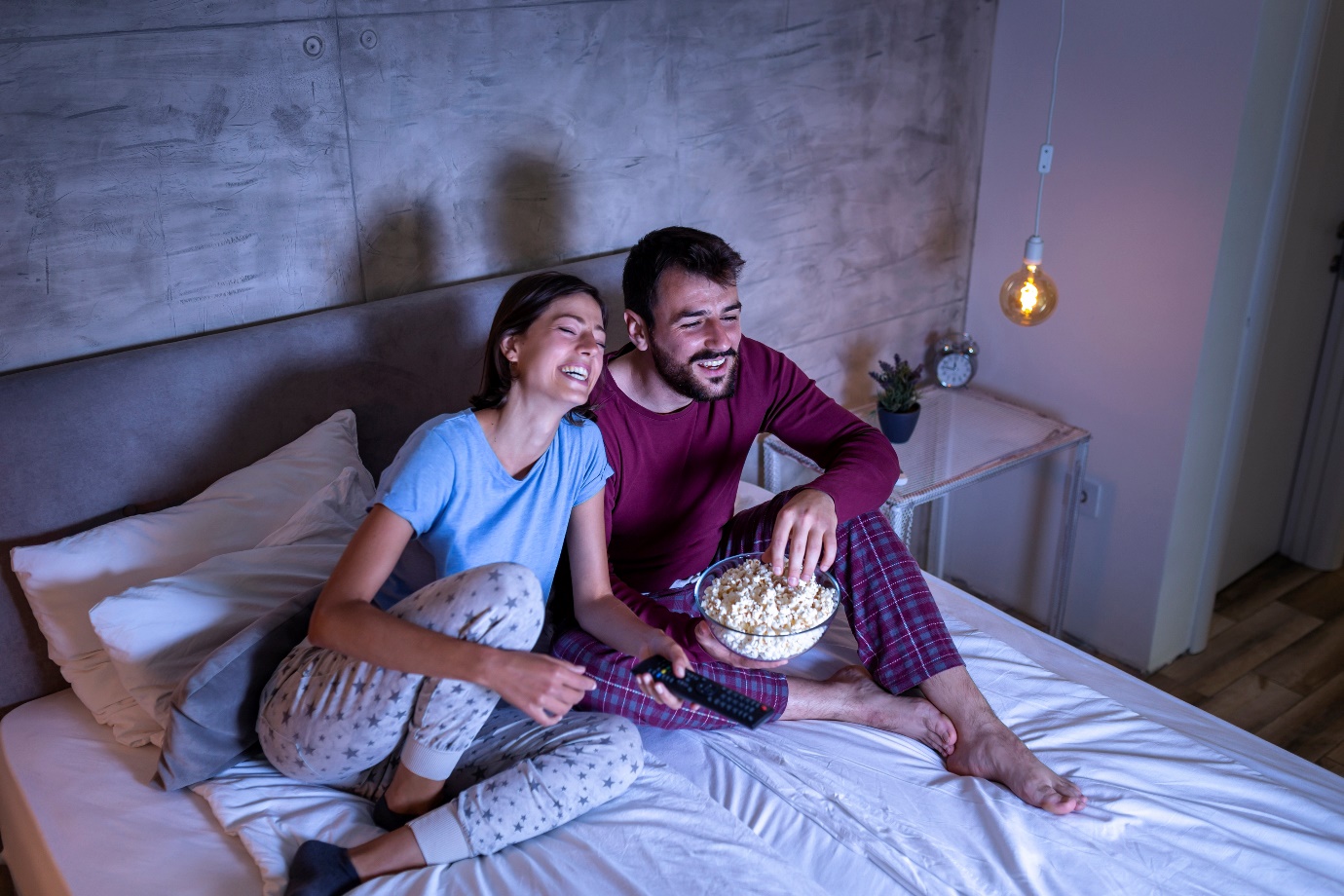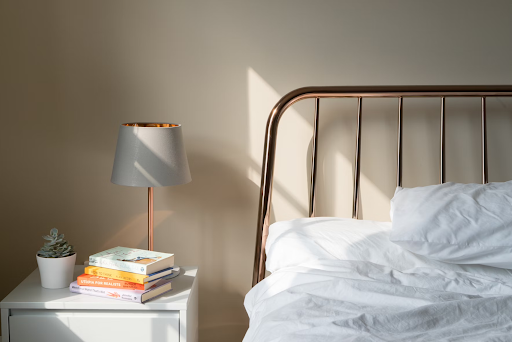50% of Brits have a TV in their bedroom: Sleep expert comments on if you should watch TV to go to sleep

Author: Dr. Hana Patel

With hit shows like Love Island providing a constant stream of nighttime reality TV viewing and over 17,000 titles globally1 to choose from on Netflix, it’s no surprise over 50% (50.9%) of Brits have a TV in their bedroom, according to new research from bed and mattress specialists, Time4Sleep - we’re spoilt for choice at bedtime!
It’s not just catching up on the latest shows that we’re using our TVs or TV beds for - we’re using them as sleep aids too. Of those Brits that have a TV in their bedroom, a quarter of them (24.9%) turn the TV on before going to sleep.
However, flicking through the channels before you doze off isn’t for everyone. Time4Sleep also revealed that 40% of Brits don't have and don't want a TV in their bedroom.
With the nation divided, where do you sit? Whether you’re for or against, resident sleep expert at Time4Sleep, Dr Hana Patel, shares her expert insight on the true effects of channel flicking at night.
So, should you really have a TV in your bedroom?
Dr Patel explains: “Any activity that stimulates the mind will prevent us from getting to sleep with ease. Watching TV is a very engaging activity that tends to hinder people from falling asleep. Therefore, from a sleep health perspective, I would generally advise against having a TV in your bedroom.
“If you do like to watch TV before drifting off to sleep, I would recommend turning it off at least half an hour before you go to bed as this will help the mind to wind down before bedtime.”
Why does watching TV before bed affect our sleep?
Dr Patel explains: “One of the reasons that the television is so stimulating is related to the effects of light on the body. Light has an effect on the production of chemicals in our body, like Melatonin for example.
“Melatonin affects the sleep and wake cycle and contributes to maintaining our circadian rhythms. Therefore, exposure to light in the evening, like that from a TV, may make it harder to get to sleep.”
If you’re one of the 25% of Brits who like to watch TV before hitting the hay or you’re looking for an alternative option to improve your sleep quality, check out Dr Patel’s five top tips below:
1. Try watching nature documentaries
Dr Patel explains: “We all know how it feels to binge a high-energy TV drama and the temptation to fit in a few episodes before bed is always there. However, those suspenseful, high-action thrillers can often trigger strong emotional responses which cause our bodies to produce lots of adrenaline, making it really hard to relax.
“If you do rely on the television to fall asleep, then I would recommend watching a program that is both visually and audibly relaxing, such as a nature documentary which includes lots of water or ocean sounds.”
2. Use a TV timer and stick to 30 minutes or less
Dr Patel explains: “If you find it easy to fall asleep whilst watching the TV, you can use a timer so that the TV switches off once you have fallen asleep.
“The timer should be no longer than 20 to 30 minutes, if you are not asleep before then, then you are unlikely to fall asleep. At this point, I would recommend getting out of bed and then returning to bed once you start to feel tired.”
3. Switch to the radio or podcasts
Dr Patel explains: “Some people find that listening to the radio or podcasts helps them to get to sleep. Without any visual stimulus, the radio is a much less engaging medium, making it a much more relaxing activity before bed - and you can listen through your TV.”
4. Reduce your exposure to light
Dr Patel explains: “I would recommend reducing the amount of light in the bedroom, whether this be artificial light or natural light. If your curtains or blinds don’t already block out light from the outside, think about installing some blackout curtains, which will ensure all light is blocked.
“Phones, laptops and other electronic devices all produce blue light that will hinder your ability to sleep. Not only do these devices produce relatively intense light, but they can also be emotionally stimulating, both of which affect how sleepy we feel.”
5. Limit your mobile screen time
Dr Patel explains: “You can try a number of methods to reduce your exposure to blue light before bedtime, leaving your phone in a different room or switching it off before you go to bed are great practices for a healthy nighttime routine.
“Whilst I appreciate it might be difficult to completely cut out a bedtime scroll, it’s important to try this if you struggle with sleep. Even switching your phone into dark mode or lowering the brightness on your phone or TV will reduce its intensity and thus the level of stimulation, however, it’s best to switch it off completely if you can.”



